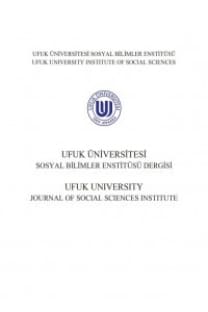John Maynard Keynes’in Yaşamı ve İktisadi Düşüncesinin Gelişimi
John Maynard Keynes makro ekonominin temellerini atan ve Keynesyen İktisat olarak da bilinen iktisadi düşüncenin kurucusudur. Pırıltılı bir eğitim ve çalışma yaşamı olan John Maynard Keynes’in iktisadi düşünceleri 1929 Dünya Buhranı ve İkinci Dünya Savaşı’nın neden olduğu büyük iktisadi sorunlarla dolu yıllarda oluşmuştur. İkinci Dünya Savaşı sonrasında yeni bir ekonomik Dünya düzeni kurmak için ABD’nin Bretton Woods kasabasında toplanan ve kasabanın adıyla anılan konferansta İngiltere adına “Keynes Planı”nı sunmuştur. Konferansta ABD’nin Maliye Bakanı’nın planı kabul edilmiş ancak bu planda da Keynes’in büyük katkıları yer almıştır. Keynes ayrıca, 1929 Dünya Buhranı’na kadar, kriz dönemlerinde piyasanın bozulan dengesinin otomatik olarak düzeleceğini varsayan ve bu nedenle piyasaya hükümetlerin müdahale etmemesini öneren Klasik İktisat okulunun varsayımlarının yanlışlığını ortaya koymuştur. Klasik iktisadın yanlış olduğunu gösterdiği serbest piyasacı varsayımları yerine hükümet müdahalesiyle ekonomide bozulan dengelerin uzun süre beklemeden yeniden kurulabileceğini ve böylelikle makro iktisadi sorunların çözülebileceğini savunan varsayımlar geliştirmiş ve Keynesgil İktisadın temellerini atmıştır
JOHN MAYNARD KEYNES’S LIFE AND THE DEVELOPMENT OF ECONOMIC THOUGHTS
John Maynard Keynes laid the groundwork for the basis of macro economics and founded the economic school of thought that has come to be known as Keynesian economics. Keynes, who had a prolific educational and professional life, first conceived his works on economic thought during the Great Depression of 1929 and during the period of enormous economic turmoil that led to World War II. After World War II, at the Bretton Woods conference, which was named after the town in the USA where it was held -for the purpose of establishing a new economic world order, John Maynard Keynes presented the “Keynes Plan” on behalf of England. At the conference, the United States Secretary of the Treasury’s plan was passed; however, Keynes contributed greatly to it. Additionally, up until the Great Depression of 1929, Keynes continued to challenge the Classical School of Economics which proposed that markets would self-correct during times of crisis and that government intervention was not necessary. Instead of free market theories of classical economics that proved to be flawed, Keynes developed a new theory that with government intervention, market stability could be reestablished and macro economic problems could be solved and thus sowed the seeds of Keynesian economics
___
- Clark, Peter (1988), The Keynesian Revolution in the Making, 1924-1936, New York, Oxford University Press
- Crooks, Ed (17 Ekim 2008) “Man in the News: John Maynard Keynes” Financial Times , https://www.ft.com/content/a754a046-9c79-11dd-a42e-000077b07658 (Erişim tarihi 14.05.2017)
- David Chambers (14 Ocak 2016), Great Economist;Poor Currency Trader, University of Cambridge, http://www.cam.ac.uk/research/news/john-maynard-keynes-great-economistpoor-currency-trader (Erişim tarihi 15.05.2017)
- Dillard, Dudley (1948), The Economics of John Maynard Keynes: The Theory of a Monetary Economy, London, Crosby Lockwood and Son
- Hession, Charles H. (1984), John Maynard Keynes: A Personal Biography of the Man Who Revolutionized Capitalism and the Way We Live, New York, Mac Millan John Maynard Keynes:1883-1946 (31 Mayıs 2013) Armstrong Economics, https://www.armstrongeconomics.com/research/economic-thought/by-author/keynes-johnmaynard/ (Erişim tarihi 13.05.2017)
- John Maynard Keynes:British Economist (t.y.) Encyclopedia Britannica, https://www.britannica.com/biography/John-Maynard-Keynes (Erişim tarihi 15.05.2017)
- John Maynard Keynes, Economist and Investor (2017), John Maynard Keynes https://www.maynardkeynes.org/ (Erişim tarihi 15.05.2017)
- John Maynard Keynes (t.y.) The Concise Encyclopedia of Economics, http://www.econlib.org/library/Enc/bios/Keynes.html (Erişim tarihi 15.05.2017)
- John Maynard Keynes (26 Kasım 2013) The Economist, http://www.economist.com/blogs/freeexchange/2013/11/keynes-from-the-archives (Erişim tarihi 13.05.2017)
- John Maynard Keynes:Biography (t.y.) The Famous People, http://www.thefamouspeople.com/profiles/john-maynard-keynes-191.php (Erişim tarihi 14.05.2017)
- John Maynard Keynes (1920), The Economic Consequences of the Peace, Harcourt, Brace and Howe, New York, https://www.armstrongeconomics.com/library/books/the-economicconsequences-of-the-peace-by-john-maynard-keynes/ (Erişim tarihi, 10.05.2017)
- Keynes, John Maynard (1936), The General Theory of Employment, Interest and Money, https://www.marxists.org/reference/subject/economics/keynes/general-theory/index.htm, (Erişim tarihi 14.05.2017)
- Keynes, Milo (1975) Editor, Essays on John Maynard Keynes, Cambridge University Press
- Lekachman , Robert (1967), The Age of Keynes, London, Allen Lane
- Mini, Piero (1991), Bloomsbury and the General Theory,London, Macmillan
- O’Connor, J.J.& E.F. Robertson (Ekim 2003), John Maynard Keynes, MacTutor History of Mathematics Archive, http://www-groups.dcs.st-and.ac.uk/history/Biographies/Keynes.html (Erişim tarihi 15.05.2017)
- Sarwat J., A.Mahmud, C.Papageorgiou (2014), What is Keynesian Economics, Finance and Development, 51/3, http://www.imf.org/external/pubs/ft/fandd/2014/09/basics.htm (Erişim tarihi 13.05.2017)
- ISSN: 2146-7676
- Başlangıç: 2011
- Yayıncı: Ufuk Üniversitesi
Sayıdaki Diğer Makaleler
Üretilen Petrolden Alınan Devlet Hissesinin Hukuki Niteliği Ve Anayasal Kanunilik İlkesine Uygunluğu
Grupla Psikolojik Danışma - Çözüm Odaklı Kısa Süreli Psikolojik Danışma: Sinerjik Bir Etki
Olcay YILMAZ, Nilüfer VOLTAN ACAR
Postmodernizm Perspektifinden 11 Eylül ve İslamofobi: Üretilen Korkunun Temelleri
ÜNİVERSİTELERDE TEKNOLOJİ VE TASARIM ÖĞRETMENLİĞİ BÖLÜMLERİNİN KURULMASI
Mesut ÜNLÜ, Demet (somuncuoğlu) ÖZERBAŞ
OSMANLILAR DÖNEMİNDE SELANİK'TE ASIRLAR BOYUNCA SÜREGİDEN YAHUDİ MEVCUDİYETİ
John Maynard Keynes’in Yaşamı ve İktisadi Düşüncesinin Gelişimi
